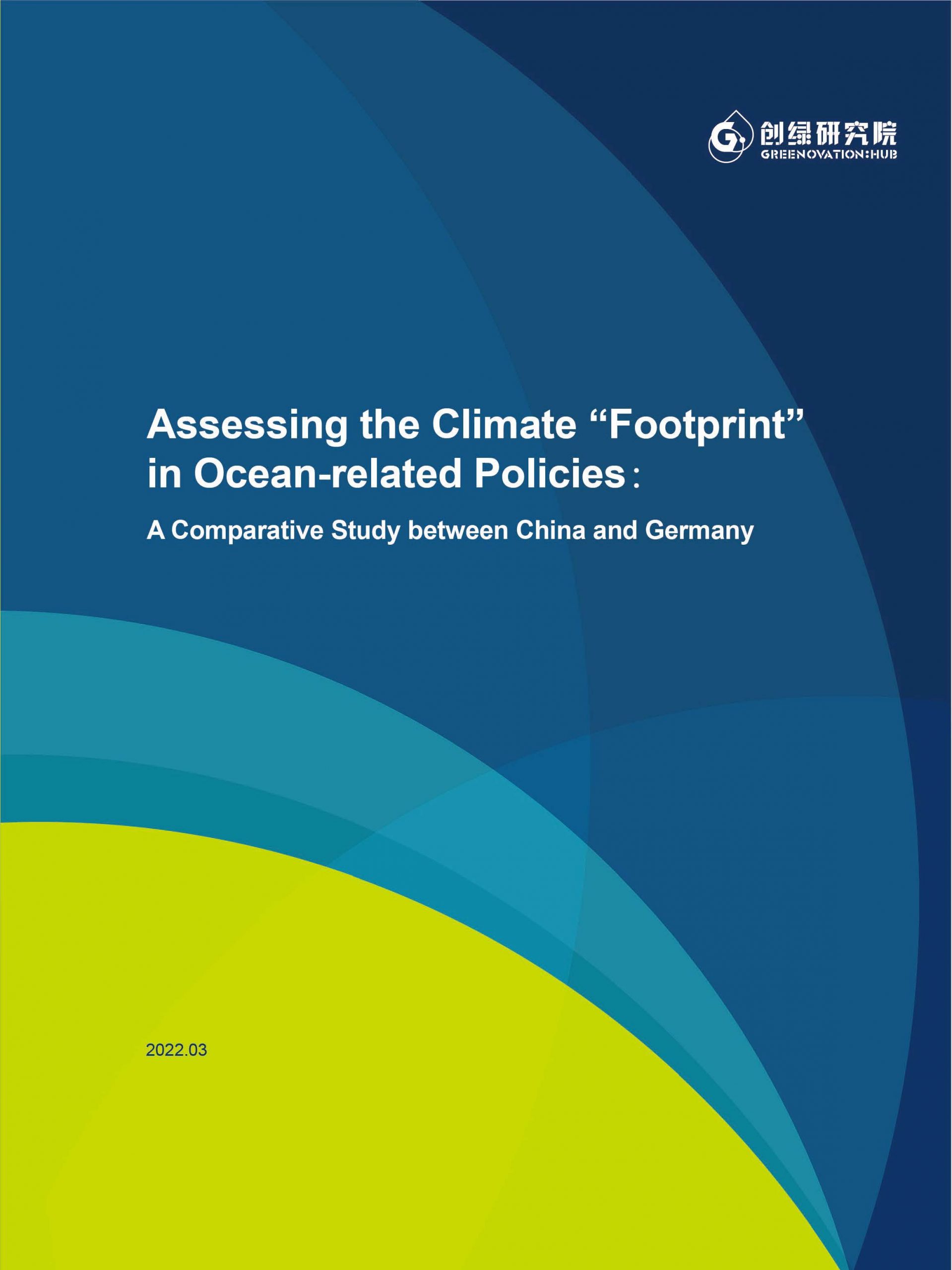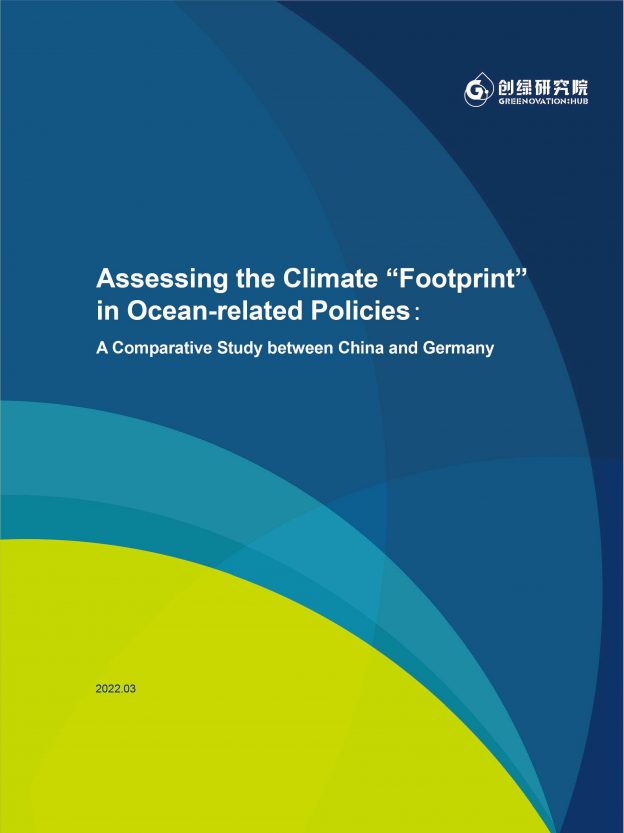
The ocean-climate nexus has received increasing attention in the last decade. The impacts of changes in greenhouse gas concentrations and temperatures on the physics, chemistry, and biological resources of the oceans; the buffering function of the oceans to climate change, and the importance of action in the sea for climate change mitigation and adaptation are increasingly discussed in academic papers, scientific reports and policy documents. The Glasgow Climate Pact, adopted at the 26th Conference of the Parties to the United Nations Framework Convention on Climate Change (UNFCCC), calls for its Subsidiary Body for Scientific and Technological Advice (SBSTA) to conduct an annual "Oceans and Climate Dialogue" and invites relevant work programmes and constituent bodies under the UNFCCC to consider how they can integrate the oceans into their existing mandates and work plans, and to report on these activities in existing reporting processes, as appropriate. A number of sectoral international marine organizations have also begun to explore the integration of climate change-related considerations into their work.
Introducing additional considerations of climate change in these international organisations, which are already occupied with their mandate, is undoubtedly difficult. At the same time, differences between the ideas, approaches, and standards of ocean management in different countries may also contribute to the difficulties of policy cooperation in international processes. Although climate policy has come a long way in many countries, there is still a lack of systematic synergy for climate adaptation and mitigation in domestic ocean policy. Domestic policy development may be relatively simple compared to negotiations within international organisations. However, it is also facing the challenges of compartmentalised administrative structures and a lack of relevant knowledge and capacity.
These challenges are common to all countries, and therefore responding to them requires dialogue and cooperation among countries at different levels. In July 2018, China and the EU officially signed the Declaration on the Blue Partnership for the Oceans: towards better ocean governance, sustainable fisheries and a thriving maritime economy (the China-EU Blue Partnership Declaration), which provides a platform for such dialogue and cooperation. To call the attention of the China-EU Blue Partnership to ocean-climate policy synergies and to provide an informative basis for discussion in the relevant official and private dialogues, with the support of the Heinrich Böll Foundation, Greenovation Hub conducted this review and comparison of the linkages between climate and ocean policy in China and Germany. Through interviews and a workshop, we have collected the thoughts and opinions from Chinese and foreign experts and identified initial priority areas for future bilateral cooperation.
The report first compares the marine-related content of Sino-German climate law and policy documents, then compares the ocean-related sectoral policies of both countries in fisheries, shipping, nature conservation, and offshore renewable energy, examining the mitigation of climate change and adaptation aspects of these. Finally, experts were invited to contribute to the discussion section based on their expertise, guided by a few questions.
Through a review of policy and legal documents, this report makes the following observations:
Similarities:
>> Both countries' high-level climate policy documents recognise the risks posed by climate to the oceans and the opportunities for action to address climate change in the oceans. Both countries recognise the importance of international cooperation in climate change and ocean governance and the key role of scientific research in addressing climate risks.
>> Mitigation policies and planning in the oceans in both countries are more straightforward than adaptation; responses to short-term, immediate risks are more explicit than responses to medium- and long-term risks in policies related to adaptation.
>> Although there is more research and discussion in Germany on the integration of climate and ocean policies, in terms of existing policies, this integration is still limited in substance in both countries.
Differences:
>> Germany has been aware of climate issues earlier in its maritime strategy. China's approach to building a "strong maritime power" emphasises the integration of land and sea and has long prioritised regional environmental protection, though with limited attention to climate risks.
>> On the importance of international cooperation in climate change and ocean governance. The German Sustainable Development Strategy has a more straightforward plan for bilateral and multilateral cooperation than the documents issued by China. The Chinese policy documents referenced in this report are shorter in terms of both diplomacy and global governance. German and EU foreign policy links climate change and biodiversity more explicitly than domestic policy.
>> In diplomacy, the EU and Germany actively promote discussions on climate change in international negotiations related to biodiversity. On the other hand, China has actively promoted 'nature-based solutions' in its climate diplomacy.
>> Differences in development stages have led to different priorities in addressing the environmental challenges of fisheries sustainability and shipping facilities. Therefore the environmental objectives in existing sectoral policies are different between the two countries.
In their answers to the leading questions, several experts felt that China and Germany are not doing enough to address climate change in their ocean policies. Despite more active and cutting-edge research and discussions in Germany, there are no significant differences between the two countries regarding the policies developed. For future bilateral cooperation, experts suggested that priorities worthy of consideration in the future include, but are not limited to:
>> Significantly strengthening scientific and technological support, increasing international cooperation, and actively promoting research on the processes and mechanisms of global and sensitive regional ocean-climate interactions, particularly German research on the relationship between climate and marine biodiversity in Europe and the Arctic, and Chinese research on the mechanisms of climate and physical ocean relationships in the Western Pacific and Northern Indian Ocean.
>> Encourage bridging gaps between sea-air interactions and climate-ocean policy-making, especially the gap between natural science and policy research and development.
>> Integrate sea-land climate response strategies, realise the three-dimensional synergy of management of land-sea-air-sky. Conduct multi-dimensional synergistic research on the sustainable development needs of land, air-sky climate awareness and response, and marine ecosystem protection and restoration.
>> Improve sectoral coordination and strengthen the top-level design for integrating science, technology, industry and planning.
>> Systematically consider integrating ocean responses to climate change into national and international climate change governance systems and providing actionable and implementable solutions.
>> Providing opportunities to enhance the integration of ocean and climate policies through improved marine spatial planning.
>> Capitalizing China's institutional strengths to explore approaches to long-term planning.
This report argues that the lack of integration of ocean and climate policies is highlighted by the lack of climate adaptation policies involving the ocean, especially in identifying and responding to medium and long-term risks. Responding to this dilemma requires advancing scientific understanding and finding tools and methods to make decisions to manage risks with limited information. Both China and Germany have well-established ocean policy frameworks, and these tools and methods could assist in developing ocean policy objectives and approaches at different levels. While Germany is slightly ahead in research, the geography and climate of China's waters are more complex. The exchange and cooperation between the two countries will benefit each other and provide useful examples for global marine policy. The priority areas of cooperation identified in the discussion section suggested that Sino-German environmental cooperation and the Sino-EU Blue Partnership dialogue could build on this to identify further projects that could spearhead. As a non-governmental think-tank in China, Greenovation Hub is willing to support relevant dialogue and cooperation. We are convinced that such exchange and cooperation will benefit domestic policy development and policy collaboration at the global level.



 PDF
PDF
